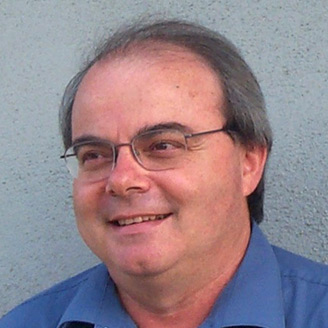“We cannot understand that great book, the Universe, if we do not first learn the language in which it is written” the brilliant Italian Renaissance scientist Galileo Galilei taught us. “The book is written in mathematical language.”
February marks the 455th anniversary of Galileo’s birth in Pisa, Italy. His world-changing accomplishments in astronomy, physics and engineering inspired the 20th century’s scientific titan Albert Einstein to crown him the “father of modern science.”
Galileo is popularly known for dropping a 10-pound cannonball and a one-pound lead ball off the top of Pisa’s Leaning Tower, demonstrating that all objects fall at the same speed. American schoolchildren should know that Galileo’s genius and experiments shaped modern human understanding of the universal laws of nature.
Principally, Galileo did groundbreaking work on velocity, inertia, and motion; crafted his own telescope lenses that allowed him to view our Moon’s craters, the moons of Jupiter, and sunspots; and authored pivotal science books. His empirical observations differentiated between the spheres of science and faith.
Galileo was also famously charged with heresy and subjected to house arrest by the Catholic Church because of his expansion of Polish mathematician Nicolaus Copernicus’ ideas about astronomy, which reversed humanity’s millennia-old misconception that the Earth constituted the center of our planetary system.
“All truths are easy to understand once they are discovered,” Galileo wrote. “[T]he point is to discover them.”
For decades, K-12 policymakers have eschewed academic precision for mushy education school dogmas, including “child-centered learning,” “hands-on learning,” and “21st-century skills.” Meanwhile, U.S. students lack basic knowledge and perform dreadfully on most national and international math and science tests.
Until recently, Massachusetts was the exception to our nationwide educational mediocrity.
From 2005 to 2017, the commonwealth outperformed every other state on the math portion of the National Assessment of Educational Progress (NAEP). In 2007 and 2011, Massachusetts ranked among the world’s highest-achieving countries in gold-standard Trends in International Mathematics and Science Study (TIMSS) testing.
Galileo’s Lesson
The Bay State’s success was a direct result of the landmark 1993 Massachusetts Education Reform Act (MERA), which put academic quality before politics. MERA established excellent science, technology, engineering, and math (STEM) standards and objective, high-stakes tests that were central to the state’s historic K-12 accomplishments.
A major lesson from Galileo’s revolutionary life was to put scientific facts and intellectual freedom ahead of political, or even religious, power.
His adoption of Copernicus’ heliocentric universe challenged Aristotle’s ancient geocentric views, the consensus at the time. And because medieval theologians fused Aristotle’s works with Church teachings, Galileo’s opinions contradicted Church doctrine, which amounted to heresy.
“The Bible shows the way to go to heaven,” Galileo wrote, “not the way the heavens go.” But he was a devout Catholic whose goal wasn’t to undermine the Church’s spiritual authority.
In addition to his early inclination to be a monk, another testament to his religious conviction was unearthed in historian Dava Sobel’s 1999 book Galileo’s Daughter. His two daughters apparently became nuns, while one of them, Sister Maria Celeste, corresponded with her father about his magnificent interstellar discoveries.
Galileo might wonder why, in recent years, Massachusetts governors Deval Patrick and Charlie Baker discarded the commonwealth’s nation-leading math and science standards for inferior, nationalized ones—Common Core math and so-called Next Generation Science Standards.
These myopic decisions leave Bay State students two years behind their international competitors, essentially using the same math and science standards as Arkansas.
In 2015, the commonwealth’s policymakers also stopped participating in the more rigorous TIMSS testing, opting instead for the soft-skills-centric Programme for International Student Assessment (PISA), which Stanford University mathematician R. James Milgram calls “shopping cart math.”
Predictably, the Bay State’s NAEP math scores fell dramatically between 2011 and 2017, while national 2015 math results were the worst in nearly a decade and remained unchanged in 2017.
Centuries ago, Galileo told us that scientific success is driven by mastering math. “If I were again beginning my studies,” Galileo wrote, “I would follow the advice of Plato and start with mathematics.”
Unfortunately, the ineptitude of K-12 educationists reigns over public schooling. These pedagogues, worshipping edu-babble and empty fads instead of durable facts, timeless truths and empirical evidence, cling to failed dogmas that leave American schoolchildren’s STEM futures lost in space.







